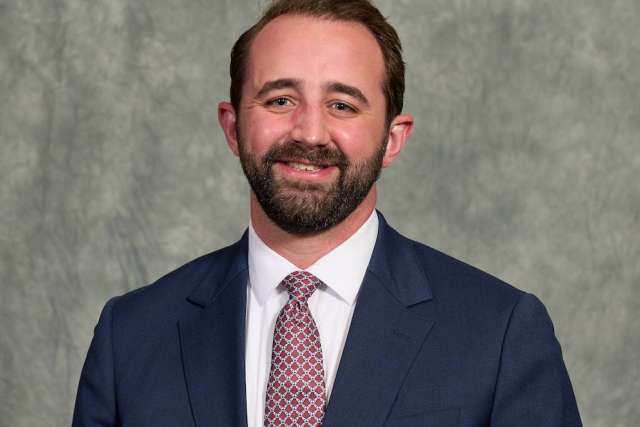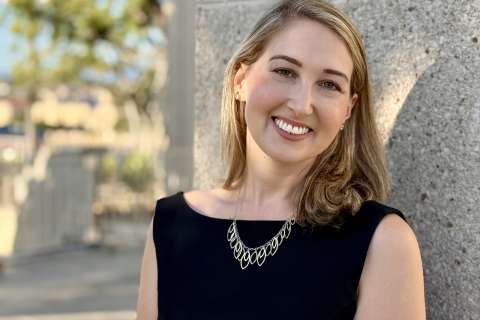“The early days of the COVID-19 pandemic were chaotic. We were on Zoom calls seven days a week for weeks on end,” he says of his team. “We were all focused on responding and preparing for something that we had never faced before. There is a strange dissonance though, because I remember it also as an ‘energizing’ time, feeling everyone coming together.”
Besides showing resilience, Weil says, everyone in the health system was relentless in their drive to give COVID patients the best treatment possible. At the same time, he says the culture at UCLA Health embodies kindness through CICARE – an evidence-based acronym informing a standard of practice for interactions with patients, families and colleagues.
“It’s something that I think our entire team, including our managers – who play a key role throughout our organization – believe in. People take delivering acts of kindness personally,” Weil says.
When Weil arrived at UCLA as an administrative fellow in 2016, the culture was what set UCLA Health apart. He recalls working at other mission-driven organizations and interviewing with other health systems but experiencing a difference at UCLA.
“This place feels really different and the people here are earnestly passionate about the work they do,” he says.
Path to UCLA
Weil comes from Goodrich, Michigan, a small, rural town, where his family continue to operate a third-generation dairy farm.
He grew up wrestling for sport and developed a close friendship with his athletic trainer – work that later piqued his interest as a possible career route.
“Our athletic trainer would drop everything on a dime to care for me and my teammates. I thought to myself, what better job than to hang out at sporting events all day and be that kind of responsive, caring person,” Weil says.
In college, Weil pursued athletic training, but it didn’t deliver the spark he had anticipated.
“I started thumbing through a course directory and found that health administration was actually a field I could study in and make a living out of,” he says. “I learned that I could still care for people and be responsive to their needs, but in a different capacity.”
“I think the constant problem solving that we get to do is a ton of fun. No two days are ever really the same.”
Drew weil
Following college and after working in palliative care and advanced planning within a metro-Detroit health system, Weil felt like he needed more technical skills and pursued a master’s degree in public health and health care management at Yale University.
In his second year of the master’s program, he interviewed for the administrative fellow position at UCLA Health, and got it.
“I’ve been trying to find opportunities to grow within operations, doing whatever is needed, ever since,” he says.
While he doesn’t provide clinical care to patients directly, Weil views his role as one that helps put team members in positions to succeed.
“Delivering acts of kindness is something we can all do and something I take personally, because it’s important,” he says.
He also finds energy in the dynamic field of health care, particularly in the “constant challenges” that pop up.
“I think the constant problem solving that we get to do is a ton of fun. No two days are ever really the same,” he says.
Weil’s role has come somewhat full circle, as he now oversees the administrative fellowship where he got his start.
He describes the fellowship as short-term, one-to-two-year positions where early-career fellows work closely with senior leaders of a health system on high impact projects. Administrative fellows get to apply the theoretical knowledge learned in school to round out any skills or professional gaps they may have.
“Fellows contribute to really important organization needs,” Weil says, “and they get exposed to how a hospital runs and the important people who help to do it."
Learn more about the Administrative Internship and Fellowship.
Related:
Meet Dr. Maliha Khan, the 2022-23 David Geffen School of Medicine LGBTQ+ Fellow
Meet Dr. Anne Coleman, director of the UCLA Department of Ophthalmology
Meet Mikel Whittier: UCLA Health Director, Health Equity, Diversity and Inclusion



